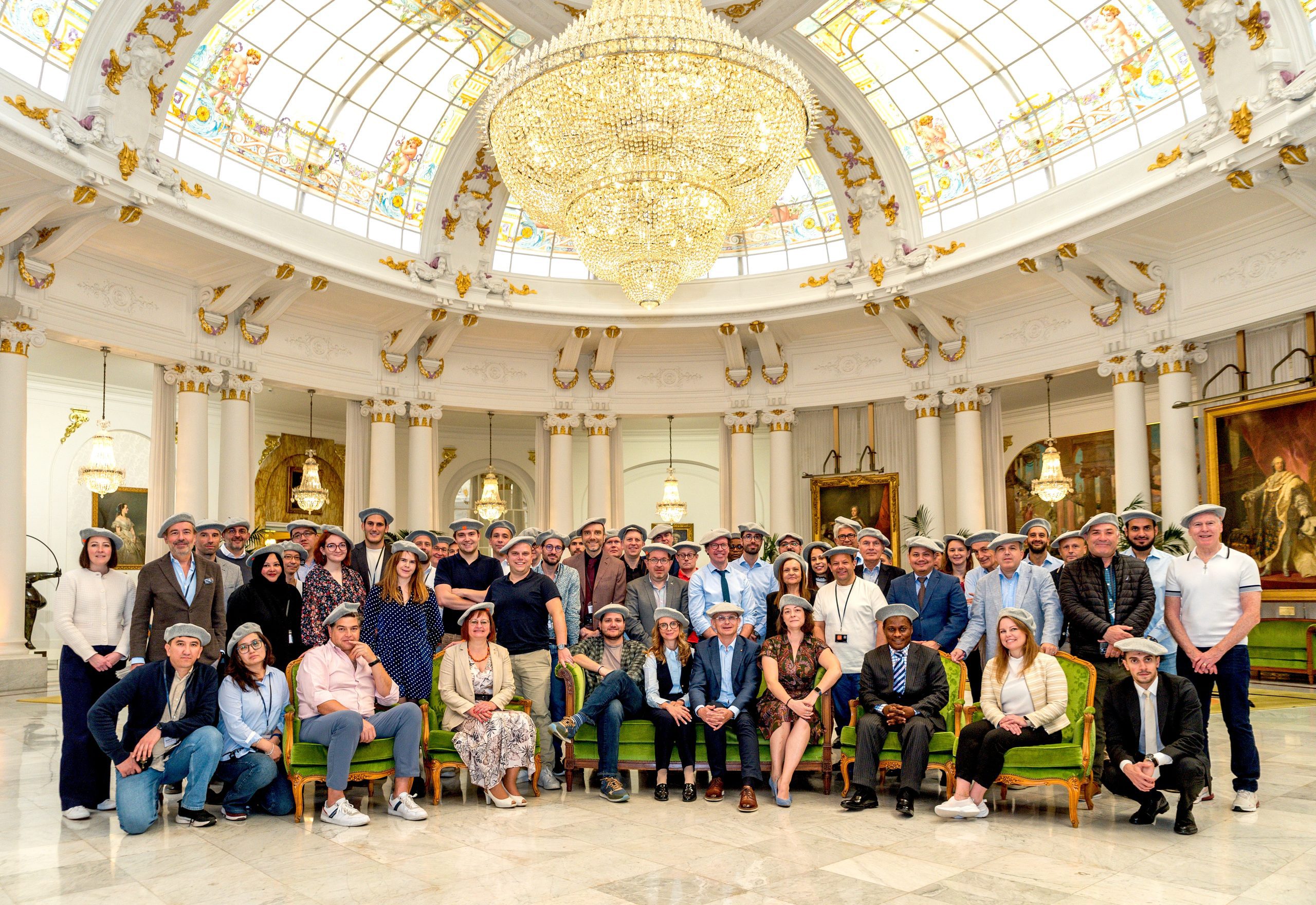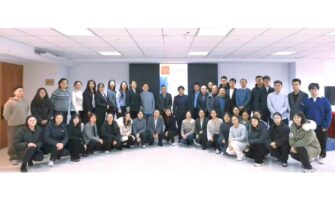22/11/2024
The future of professional services: insight from the TGS annual conference 2024
Events
TGS member firms at the 2024 annual conference, Nice
Professional services firms face an inflection point
Digital disruption, sustainability mandates, and shifting client expectations are fundamentally reshaping the industry. At TGS Global’s annual conference in Nice, leaders from across the network’s 60-country footprint gathered to chart a course through these changes. Their discussions revealed both the scale of the challenge and a framework for addressing it.
Leadership for a new era
The conference marked a pivotal moment in TGS’s evolution. Network President Marc Desjardins announced his departure in 2025 after twelve years of leadership that saw the network grow from two member firms to a global presence. His successor will inherit an organization that has doubled its size through the pandemic while maintaining its entrepreneurial spirit. For mid-sized firms, this growth trajectory offers a compelling lesson: crisis can be an opportunity for bold expansion rather than retrenchment.
TGS members recorded a moving thank you video for Marc.
There were tears! Watch the video here.
The ESG goldmine
Environmental, Social, and Governance (ESG) services represent the professional service industry’s next major revenue stream. The numbers are compelling: carbon footprint assessments can command upwards of €5,000 per engagement, while comprehensive ESG reporting services can generate fees of over €60,000. With the EU’s Corporate Sustainability Reporting Directive affecting 50,000 companies from 2024, demand will only increase.
Success in this market requires more than technical expertise. Senior professionals who can navigate corporate politics while delivering substantial value are essential. For firms entering this space, the message is clear: invest in experienced talent and robust advisory methodologies or risk being relegated to compliance work.
The AI balancing act
Professional service firms must thread a difficult needle with artificial intelligence. The technology promises efficiency gains but threatens core service lines. TGS’s approach, currently and experiment with “Vitamin AI,” offers a practical framework: use AI to augment rather than replace human judgment. This strategy acknowledges that while machines excel at deductive tasks, humans retain the edge in inductive thinking—the ability to create novel, useful simplifications of complex situations.
For mid-sized firms, this suggests a clear technology strategy: invest in AI for routine tasks while developing human capabilities in areas machines cannot easily replicate, such as strategic insight and creative problem-solving.
Growth through integration
The industry’s consolidation trend shows no signs of slowing, but successful mergers require more than financial engineering. Leading TGS firms shared a consistent message: cultural fit trumps financial metrics. One Dutch member firm’s approach is instructive—they invest heavily in pre-merger discussions and willingly abandon deals where cultures clash, regardless of the financials.
Successful firms also maintain strict profitability metrics: gross margins above 50%, overhead below 30% of revenue, and net profit of 20% or more. These benchmarks provide a useful reality check for firms considering acquisitions.
Professional development reimagined
Traditional training programs no longer suffice in an era of rapid change. The conference introduced the Inner Development Goals framework, focusing on five key dimensions: Being, Thinking, Relating, Collaborating, and Acting. This approach recognizes that technical expertise alone cannot address today’s complex challenges.
For firms, this means rethinking professional development. Cross-border mentoring, protected innovation time, and structured experience programs should complement traditional technical training.
Global reach, local touch
TGS’s 2025 event calendar reflects a sophisticated approach to international expansion. Major gatherings in Brussels, Las Vegas, Jakarta, and Africa will provide platforms for knowledge sharing while respecting regional differences. This model—global reach with local sensitivity—offers a template for firms expanding internationally.
The innovation imperative
Perhaps the conference’s most striking insight concerned innovation. In an industry where billable hours often trump creativity, leading firms are carving out protected time for strategic thinking. This approach acknowledges that future success requires more than incremental improvement—it demands fundamental rethinking of service delivery models.
Looking ahead
The professional services industry stands at a crossroads. Firms that master the balance between digital efficiency and human insight, between global reach and local understanding, between technical expertise and strategic thinking, will thrive. Those that cling to traditional models risk obsolescence.
TGS’s conference offered a blueprint for navigation: invest in ESG capabilities, embrace AI while developing human potential, maintain strict operational discipline, and never stop innovating. For professional service firms worldwide, these lessons could mean the difference between leadership and irrelevance in the years ahead.
The future belongs to firms that can execute this complex balancing act while maintaining the agility to adapt to changing circumstances. In an industry often accused of conservative thinking, such boldness may seem counterintuitive. But as the conference made clear, the greater risk lies in standing still.
Don't stand still
Be bold. Reach out and to see how a TGS membership could secure the sustained success of your firm



